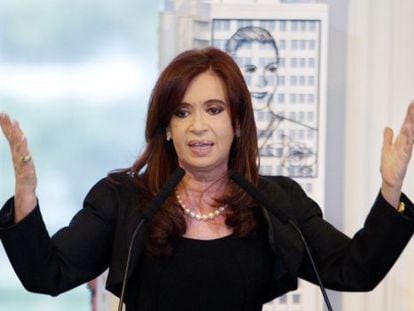Second legal front may open in Repsol’s battle with Argentina
Repsol has to buy Eskenazi YPF stake under 2008 deal Spanish firm can argue nationalization is force majeure
Repsol, whose YPF unit was nationalized by Argentina this week, agreed in 2008 to buy back the Eskenazi family’s shares in that oil company in the event that Repsol were to lose majority control, Bloomberg reported Friday.
The accord also calls on Repsol, under certain conditions, to take over loans the family used to buy YPF shares. Repsol spokesman Kristian Rix said the agreement is “not applicable” in the context of expropriation.
Repsol would probably try to fight a move by the Eskenazis to enforce the accord by using a so-called force majeure argument, according to two lawyers familiar with the matter who saw the document or were briefed on it. The Eskenazi family’s 25-percent stake in YPF was not nationalized.
Repsol Chairman Antonio Brufau this week called the expropriation illegal and estimated Repsol’s potential loss at 5.7 billion euros. Salvador Gabarró, the chairman of Gas Natural Fenosa, of which Repsol owns 30 percent, on Friday called for a “measured” response from the government to the expropriation.
Repsol would argue that Argentina’s seizure of 51 percent of YPF was an unforeseeable event preventing it from fulfilling its obligation to the Eskenazis, said Tom Ginsburg, a professor of international law at the University of Chicago.
“It’s black-letter law that expropriation by a government would constitute force majeure so long as it was not foreseen or foreseeable by the company,” Ginsburg said. “The Eskenazi family will argue that Argentina had a long history of expropriation, so it should have been foreseeable that a change in ownership could come about through a government takeover.”
Repsol will claim that it did not voluntarily change its ownership stake, so it does not have a duty to pay the Eskenazis, Ginsburg said.
More information











































